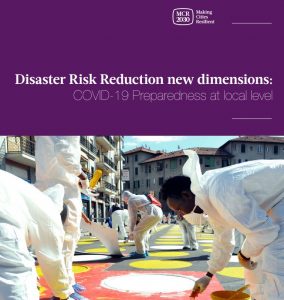This policy brief is one outcome of a six-month project implemented by MCR2030 together with the University of Huddersfield. Setting out key recommendations for local authorities on how to mainstream pandemic plans into local Disaster Risk Reduction Strategies.
“The policy brief provides insights on several critical problems that need to be addressed to improve epidemic and pandemic preparedness, and build national, as well as local and city-level resilience that integrates public health and disaster risk management”, explains Professor Dilanthi Amaratunga from the University of Huddersfield, one of the leading authors of the report, and a member of the MRC2030 Regional Committee for Europe and Central Asia.
To mainstream pandemic plans into local DRR strategies, the report suggests local authorities should consider the following recommendations:
- Consolidate and update existing DRR plans and policies so that pandemics and epidemics are identified separately in plans and policies;
- Identify pandemics and associated compound hazard scenarios in assessments of hazard, risk and vulnerability;
- Improve pandemic detection and monitoring, including associated compound hazard scenario’s;
- Issue early warning messages during a pandemic and associated compound hazard scenarios, because these have a wider reach and can effectively achieve the necessary behaviour changes;
- Improve preparedness and response for pandemics and associated compound hazards;
- Promote cross-sectoral data sharing to ensure that comprehensive risk assessments also cover pandemics;
- Develop policies to enable the prepositioning of resources and build capacity of responsible authorities to mitigate the pandemic impacts, including associated compound hazard events.

